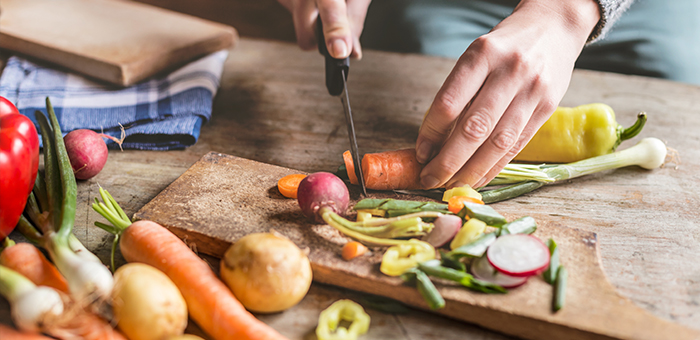18 Ways to Reduce Food Waste
 Around the world there are many inspiring people working to reduce food waste. See blog post on Don’t Waste Away – The Problems of Food Waste for success stories and initiatives focussed on reducing food waste.
Around the world there are many inspiring people working to reduce food waste. See blog post on Don’t Waste Away – The Problems of Food Waste for success stories and initiatives focussed on reducing food waste.
Here are 18 ideas to help you reduce food waste at home:
1. Use your senses – food may have a best before date, sell by date and use by date but none of these are as informative as your own senses. Look at the food, smell the food, taste the food – you’ll most likely know if it’s good to eat or not.
2. Plan your meals – make a list of ingredients and buy food accordingly you’ll most likely use everything you buy.
3. Stock take – before you go shopping or plan your meals see what you already have. Incorporate the ingredients you have into your plans before buying more.
4. Eat leftovers – if you have any leftovers at the end of a meal – hurrah – lunch for the following day is sorted. Alternatively, freeze them for a later date. Naming and dating food before freezing is recommended to avoid confusion!
5. Upcycle leftovers – left over food can be made into something else. For example vegetables can go into a soup, stir fry, stew or bubble and squeak. Grains can form the base of a salad. Pulses can be whizzed up into a dip or added to soup. Be creative!
6. Pay attention – take note of foods that get thrown away regularly and adjust your buying habits accordingly.
7. Shop loose – there are now plastic free shops in some towns where you can buy loose goods in whatever quantity you like. Take your own containers and buy what you need.
8. Shop ugly – many supermarkets now sell imperfect fruits and vegetables that would previously have been discarded. These are often less expensive and just as tasty.
9. App Happy – there are now apps to help minimize food waste including food calculators to work out quantities of food needed to feed a certain number of people. There are also apps that tell you where food scraps are welcome to feed animals or composting schemes.
10. Take a doggy bag – if you eat out take some containers with you and bring the left overs home.
11. Freeze it – most leftovers can be frozen, with the exception of raw salads. Bread, pulses, stewed fruit, soups, stews, cooked vegetables are all fine frozen. If you struggle to get through fresh fruit and vegetables buy them frozen, they’ll last longer and be there when you need them.
12. Keep it clean – regularly cleaning and organising your fridge and freezer will make it easier to see what you have and reduce the chance of things mouldering away at the back.
13. Preservation – learn how to make jam, chutney, sauerkraut and pickles.
14. Store properly – food should always be wrapped up or put in a covered container. If putting leftovers in the fridge always cover them with a lid or plate.
15. Store fruit and vegetables dry – wet food decomposes faster than dry food. If your root vegetables are covered in soil leave it on until you are ready to eat it as the soil helps preserve veg for longer.
16. Eat more plants – feeding livestock grain and soy is wasteful as more people could be fed if the crops went straight to humans rather than via intensively farmed animals. Eating foods from lower down the food chain and avoiding factory farmed, mass produced animal products is a key step in improving global food supplies.
And keep yourselves and others informed.
17. Educate – talk to your children, friends and neighbours about the importance of reducing food waste. Talk about the environmental effects, the financial cost and the problems of global food poverty which is likely to affect people local to you, as well as in other countries.
18. Research it – the World Wildlife Fund has a toolkit to help people understand more about food waste and the impact it has on our planet: https://furtherwithfood.org/
Also see blog post on 12 Tips for Food Storage and Usage for more ideas on keeping food fresh and good to eat.
Think Global, Act Local
Food waste and food poverty are huge global problems. But we can all make a difference; by resolving not to throw food away you will reduce your carbon footprint, save money and potentially reduce food poverty. As a consumer you have significant power. Think how you spend your money on food and the impact it can have.